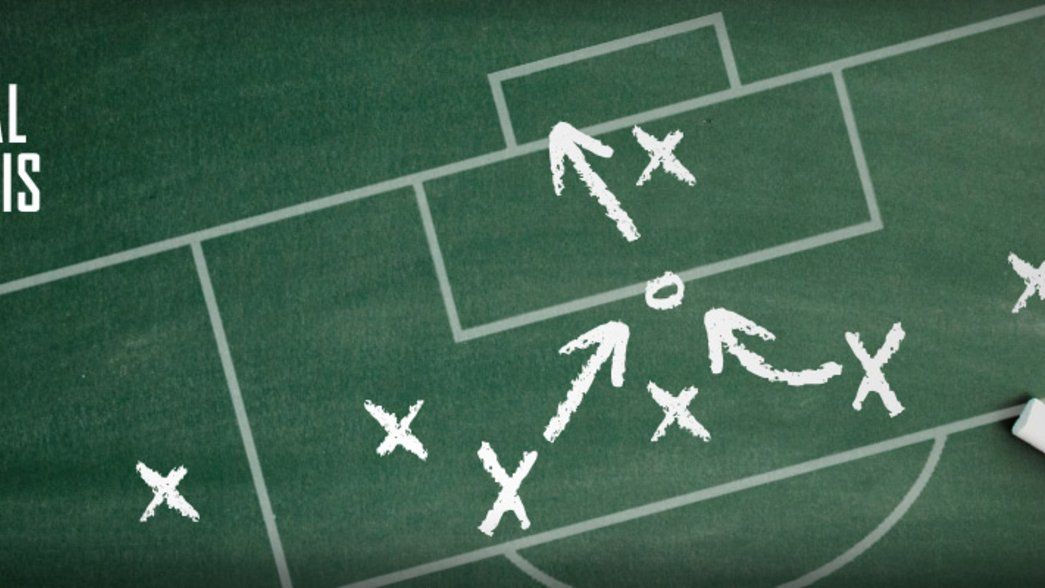Swansea City have given Arsenal considerable problems over the last 18 months.
The Gunners’ first trip to the Liberty Stadium last season ended in a 3-2 defeat, while two Michu goals handed Michael Laudrup’s side a superb victory at the Emirates late last year. Meanwhile, in the FA Cup, Arsenal needed a replay and an 86th-minute Jack Wilshere strike to progress to the fourth round.
"Swansea didn’t manage to record a single shot on target, despite their 619 passes"
“Swansea is always a difficult place to go, they have now won the League Cup and they are one of the teams of the season,” said Arsene Wenger before Saturday’s trip to Wales. “They have been remarkably consistent and play good football.”
Perhaps the problem is that Arsenal aren’t accustomed to playing sides boasting Swansea’s ball retention skills. Saturday’s fixture between saw Arsenal’s second-lowest share of possession this season - just 43 per cent. The only league match where Arsenal had less of the ball was in the 2-0 home defeat to Manchester City, where Laurent Koscielny’s early red card had a significant impact upon the shape of the game.
Despite Swansea’s dominance of the ball, Arsenal recorded a 2-0 win. Swansea didn’t manage to record a single shot on target, despite their 619 passes. Indeed, Opta have been unable to find a more extreme example of possession without penetration, going back through seven years of Premier League matches.
This, then, was a most unusual Arsenal victory. “The attitude of our players and our team was outstanding,” said Wenger. “Even when the legs were a bit less fresh, we kept going and refused to drop points.”
An uncharacteristic Arsenal performance can be broken down into three major areas.
"Arsenal’s solid positioning was a bigger factor in the clean sheet than any active defending"
First, the defensive play was extremely impressive, with Per Mertesacker outlining the progress since the disappointing 2-1 defeat at White Hart Lane.
“There was a lot of room for improvement after the Tottenham game - we saw a lot of things on television,” he says. “Sometimes we didn’t choose the right direction and we just lacked a bit of defensive work as a unit. There were a lot of situations where there was no pressure on the ball and the back four was not prepared for any balls between us. To cover each other, that was the most important thing we learned.”
Indeed, Arsenal’s solid positioning was a bigger factor in the clean sheet than any active defending: Arsenal only needed to make four clearances and one block inside the penalty box, and only four tackles within their own third (see Fig 1)

Fig 1
Key: Green = Tackles, Yellow = Blocks, Purple = Clearances.
The second part was about good, purposeful attacking. Arsenal had less of the ball, but managed 16 attempts in the game - partly because of inventive forward passing from midfield. Abou Diaby and Mikel Arteta ended the match with impressive completion rates (89 per cent and 92 per cent respectively), but that was less important than the direction of their passes (see Fig 3 and 4, below)
Rather than knocking the ball sideways, they looked to play in attackers, and even when passes were misdirected, the intention was always promising. “I prefer the one who loses the ball a bit more, but tries to play it forward,” Wenger once said, underlining the danger of relying on pass completion statistics.

Fig 3
And there was even a touch of long ball to Arsenal’s play. Because Swansea pressed Arsenal’s defenders and stopped Lukas Fabianski playing short passes out from the back, he was frequently forced to hit the ball long.
Therefore, somewhat surprisingly, Fabianski to Olivier Giroud was Arsenal’s joint-most frequent passing combination (see Fig 2, above) - along with Arteta to Santi Cazorla and Mertesacker to Diaby (again, passes which moved the ball forward).
Those long goal kicks showed the value of having a ‘big man’ up front, and although it’s not classic Arsenal, it showed an ability to alter their usual football philosophy against a short passing side that have caused problems in the past.
Copyright 2025 The Arsenal Football Club Limited. Permission to use quotations from this article is granted subject to appropriate credit being given to www.arsenal.com as the source.




